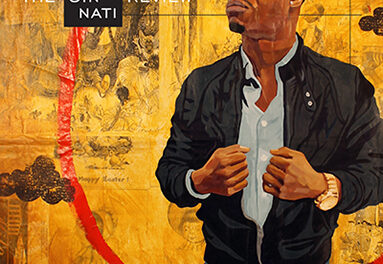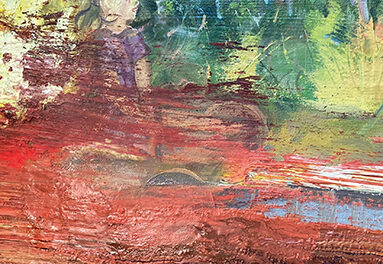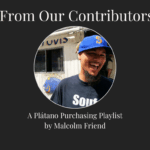We are pleased to share this review by Emrys Donaldson of Genevieve Hudson’s Boys of Alabama (Liveright, 2020), which appeared in Issue 18.1 as part of a special multigenre review feature on art and activism (read the entire feature here):
Here in rural Alabama, dirt in every earthbound color retains vestiges of an ancient sea dried in the heat. It is a place rarely seen in books put out by the biggest American presses. Some months, each book on my reading list—one after another—is set at least in part within the same few piss-stained miles in Manhattan or Brooklyn. Inevitably, the hot metal smell of the subway and the crush of humanity make their respective entrances. Every now and then, the Central Park duck pond shows up. Genevieve Hudson’s debut novel, Boys of Alabama, takes place instead in the fictional town of Delilah somewhere near real-life Vance, Alabama, and as I read I felt the shock of recognition, because I have lived here since 2015. Landmarks abound, and spotting them became a game: here, the Mercedes-Benz plant visible from I-20; there, the University of Alabama stadium-cum-grounded-alien-warship. In such a landscape, the tradition of the Southern Gothic infuses the tangled skein of contradictions about nature, self, and identity at the heart of this book.
This shock turned to a thrill at the centering of LGBTQ+ life in rural Alabama—an updated version of the thrill I felt when I first read Fannie Flagg’s Fried Green Tomatoes at the Whistle Stop Cafe (Random House, 1987). Both books contain loving queer relationships, which I see ample examples of here in real life but not often in novels. The fictional town of Delilah in Boys of Alabama exists only an hour’s drive from a major metropolitan area where Max might attend an afternoon Pride parade, but he cannot drive and there’s no dependable public transit. For rural youth without transportation, the nearest city can feel as far as the moon, and an open queer community may exist only through the web, through interpersonal relationships, and through books like this one. Boys of Alabama is a love letter to the complexity of queer Southern masculinities, in all their lushness and violence, their lust and danger. The paradox of visibility means that while the coming-out process focuses on authenticity and self-definition, it can also result in directed violence. Inhabiting this paradox results in fierce joy, terror, and resilience. Max, the novel’s protagonist, is a gay German teenager with magic healing powers. He reanimates dead creatures discarded as trash: cats mushed by cars, drowned puppies, bloated fish. In a place ruled largely by the death cult of the GOP, where both animals and queer people are treated as disposable, Max’s resurrections fight back against the status quo.
This status quo is represented by the Judge, a larger-than-life character who could have emerged wholesale from Blood Meridian, been refracted through Neo-Charismatic Christianity, and landed a spot as a major player in Alabama politics. He is the unflinching avatar of “Those who spare the rod hate their children, but those who love them are diligent to discipline them” (Proverbs 13:24). Think Kenneth Copeland with more dead followers (devotees of the Judge drink poison to prove the presence of God inside them). Instead of accepting his son’s queer attraction to a classmate, the Judge ties his son to a tree and stabs him in the ribs for the thought-crime of sodomitical desire. Though he seems like an exaggerated figure, he echoes the ethos of real Alabama politicians like senatorial candidate Roy Moore and Rep. Mike Rogers. The drive to do violence to LGBTQ+ people simply because of our existence—let alone our flourishing—confounds me. Queer and trans people will continue to exist in spite of such violence, but so often our most vulnerable community members suffer the effects of these attempts to erase us from public life (a masquerade for our actual deaths).
Max is drawn to the Judge like a moth to a flame. The force of the desire to belong supersedes the type of sexual desire he has, and Max questions which knowledge about himself is real. This questioning seems akin to the first stage of coming out, identifying publicly as a member of the LGBTQ+ community. Other characters seduce him with evangelical Christianity and by pretending they have all the answers. In far-right cultural discourse, queer and trans people are often accused of converting teenagers to a “cause” or “lifestyle,” for example, in the book Irreversible Damage: The Transgender Craze Seducing Our Daughters (Regnery, 2020), which posits the existence of this type of seduction. This harmful point of view claims that the natural self is heterosexual and cisgender, rather than queer like Max or gender nonconforming like Pan, Max’s lover. However, in some of the most gorgeous passages in Boys of Alabama, Max ponders the places on Pan’s body he has yet to touch—“the edge of skin between earlobe and neck, the hollow of collarbone, the pink pad of foot bottom, the long line of shinbone, the tendon at the back of the knee.” This soft attention, this simple desire, this healing space where someone notices the landscape of a cared-for body—they are what the Judge wants to crush under his boots.
The same characters who attempt to seduce Max into choosing a conservative lifestyle and joining an evangelical church become a synecdoche for the place where they all live. On the book’s opening page, the narrator declaims that these “boys are Alabama. They are red dirt and caked mud. . . . They are pine trees ripped up to make room for gas stations, stadium lights, drive-thrus, gridirons, and steel mills.” They become the land, and the land becomes them. Our environments seep into us: the minerals in our bones and teeth, the colonies of bacteria on our skin and intestines, our neurological growth and development. I often wonder about the relationship between memory and land in rural Alabama, where many places are marked by the history of the transatlantic slave trade and by the violence—and centuries-long resistance to that violence—which accompanied it. The land here bears the history of violence born of the intersection of capital and whiteness, and the first step in acknowledging it is to look at it directly, to let it burn like the sun, to let it pass through the body like the first sips of poison.
The boys in Max’s peer group have made choice after self-destructive choice by the end of the book, yet its ending does not resolve. As a craft choice, it’s a bold and successful one. Hudson arranges their characters in a final tableau at the moment of Max’s most intense internal conflict between his burgeoning identities. Due to the strength of Hudson’s characterization, the ramifications of his choice seem clear regardless of what he chooses. The lack of final resolution after his decision is a tight, savvy, and successful move—the antithesis to the way some books end without resolution, as though the author of that text simply got distracted. As a reader and media-imbiber, I tend to be frustrated by books and films that (essentially or literally) flip to the credits at the very moment the protagonist teeters on the verge of a crucial choice. I usually want to see what happens as a result of the character’s choices, with the agonizing slowness of a boulder coming to a complete stop. However, because of Boys of Alabama, I see that my frustration is likely not a failure of the texts but of my own readerly imagination.
It is my fervent hope that readers will get to enjoy many more books by Genevieve Hudson and many more books like this one. American Literature, broadly writ, needs more #ownvoices books, more stories about life for Southern LGBTQ+ young people. Sometimes it seems like most major-press novels put out about the South truck primarily in fulfilling Northerners’ expectations, with poverty porn and unrelenting violence. Space for our real lives already exists from the Appalachian foothills to the coasts of the Gulf and the Atlantic. We need for these complex lives to be reflected in literature, so that young queer people the nation over know that they have a place, that there are many others like them, and that their stories matter.
Emrys Donaldson (they/he) is an assistant professor of English at Jacksonville State University in Jacksonville, Alabama. Their work has recently appeared in TriQuarterly, DIAGRAM, The Rupture, and other publications. Read more at emrysdonaldson.com.











